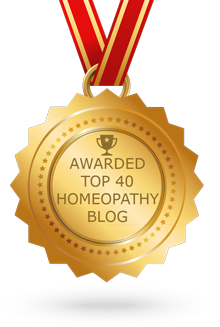The History of Antibiotics
Most of us would be aware of the life-saving effect antibiotics have had on literally millions of people since they were first manufactured on a wide scale in the 1940’s. It is a very recent discovery when you think about what the many previous generations would have used instead over the history of mankind. What many of us may not be aware of is that the word “antibiotic” can be applied to all kinds of different substances. In fact, Penicillin and many other conventional antibiotics are actually often derived from moulds.

The days before antibiotics
Antibiotic resistance
Unfortunately since the advent of mass production by the pharmaceutical companies, antibiotics have been over-used in the past few decades and now we are seeing the disastrous consequences first hand as hospitals battle superbugs that literally can no longer be destroyed using conventional methods. What is even more of a worry for us living our everyday lives, is that antibiotic resistance isn’t just isolated to superbugs. These days if you go to the doc with a bacterial infection it’s increasingly likely that these little infections will no longer be wiped out with a regular dose of antibiotics that may have worked without an issue a few years before. This means we are being thrown back into the days before antibiotics where many people died of these simple infections that got out of hand if their immunity was low.
“Natural” Antibiotics
It has been found that the ancient Egyptians, Chinese and American Indians all used various moulds to treat infections. Herbs such as Golden seal, Pau d’arko, Tea tree, Eucalyptus, Sage, Echinacea, Olive leaf and the humble, yet powerful, Garlic clove are all great examples of potent herbs that are known to kill all manner of bugs. These have been used successfully for literally thousands of years by many cultures to treat a wide variety of ailments. Click here to see our own Jaquie Harrison’s article on Garlic for helping with the symptoms of food poisoning.
Why did Antibiotics replace natural treatments for infections?
It’s true that many people used to die from diseases that up until now have been easily curable by a simple prescription of antibiotics. In the heyday of antibiotic use, infections that were previously life threatening usually responded within days to hours on a relatively reliable basis with the prescription of the right antibiotic medicine. Another benefit was that these medicines could be produced on a large scale and ended up making the manufacturers of these medicines stinking rich. Once it was discovered that a pill could quickly and effectively eradicate a previously dangerous disease, the world turned its back on herbs and embraced the new miracle drugs with celebration. The only problem was that the new drugs came with a few unpleasant side effects.
The Side Effects of Antibiotics
The most common issue with antibiotics is that they kill bacteria relatively indiscriminately. It turns out that this has been more of a problem that we would ever have imagined. If we look at the body in microscopic detail we find that the human body is more of an ecosystem, sharing a beneficial symbiotic relationship with literally billions upon billions of tiny micro-organisms, most of them bacterial. In fact, in this article it has been reported that many more cells in the human body are actually bacterial than those made by our own body, and these beneficial bacteria are vital for many basic functions of the body! An example of this would be the beneficial bacteria in the gut, such as Acidophilus, which have been found to be a key factor not only in digestion but also in the very basis of immune function. Taking a broad spectrum antibiotic literally wipes out huge populations of these bacteria, leaving behind the rare, super strong types that may not have as beneficial an effect on our bodies as the hordes of “good” bacteria wiped out by the antibiotic. Once the “good” bacteria are wiped out, empty spaces remain in the gut and other mucosal areas, giving the not so good micro-organisms the opportunity to move in. Candida is one of those organisms forever present in small amounts in a healthy individual, but given the chance it will grow out of control and be only too happy to completely take over the sensitive mucous membranes of the gut, mouth and any other tender areas that are moist and rarely see the light of day. If it’s severe enough it can even spread into the blood stream and appear in spots on the skin. For those severely immunocompromised, Candida poses an enormous and often life threatening problem in many ways. Another issue with the loss of “good” bacteria from the body is caused by the same Candida spores literally compromising the intestinal wall, causing “holes” in the mucous membrane of the digestive system. The mucous membrane is supposed to prevent any but the tiniest of nutrients to seep through into the bloodstream. This is termed “leaky gut syndrome” or “hyperpermeable intestines” to be more medically correct. There are also other ways this problem can occur, but Candida overgrowth is one of the most common.

How antibiotic overuse can affect your child
Let’s say, for example, that your child has had many doses of antibiotics in the past for ear infections. The antibiotics then kill off the good bacteria and Candida grows to take its place. The Candida eats away at the membranes of the intestines until the usual microscopic holes that let nutrients into the bloodstream become larger. Instead of nutrients which have been broken down and processed properly by the gut, larger molecules then find their way into the bloodstream. These molecules are seen as foreign and dangerous by the immune system, which attacks them instead of seeing them as food. What’s even more disturbing is that some of these molecules reform into other more insidious substances that can penetrate the blood brain barrier and affect the brain like certain chemicals do, such as opiate drugs or stimulants. These larger molecules can cause behavioural changes, digestive disturbances, skin rashes and even deadly allergic reactions. Having a constant stream of “foreign” particles in the bloodstream causes the immune system to be constantly on alert and firing all the time, and in the long term such a situation can lead to chronic, autoimmune disorders and a general compromising of the immune system. And that’s just on the physical level! Imagine what those irritating molecules are doing to the brain chemistry of this child. Just to remind you, this is just one example of what could happen when too many doses of antibiotics are given to a child. More examples and information can be found here, and from a different angle here. There is even a strongly researched link made between certain types of autism and use of antibiotics in early childhood. The more you research antibiotics the more you will come to realise that these so called miracle medicines really shouldn’t have been used for anything at all aside from directly life threatening situations. Yet if you look at all of the situations where antibiotics are used, we see they are casually thrown at minor infections in millions of people, left, right and centre. It is also of concern that antibiotics have been put into our food chain on so many levels as a preventative for common diseases that could be eradicated using better farming methods and other, safer alternatives. So, next time you reach for the phone to make an appointment with your local GP, you may want to think about whether those antibiotics you are prescribed are really necessary as we are already teetering on very thin ice.
But surely there’s another viable alternative to antibiotics
Thankfully, there is another way. I am not proclaiming that homeopathy offers a 100% guarantee to stop any infection dead in its tracks, but then again, neither do antibiotics. And homeopathy offers a wide range of effective treatments for many types of infections on an individualised and cost effective basis, with very few side effects! In fact, the Swiss government has now included homeopathy on its Medicare equivalent public health program after its investigation into the real life effectiveness of homeopathic treatments found homeopathy to have a better outcome in many issues than conventional treatments. Does that sound too good to be true? Well, let’s have a look at some examples of how Homeopathy can be super effective at helping the body beat infections whilst actually boosting the immune system and maintaining,or even improving the ratio of good bacteria and other micro-organisms in the body. Many of these examples can be backed up by very convincing research, which seems to have been ignored by the NHMRC recently when it declared homeopathy to be unviable. It’s a shame really, since there will need to be some kind of replacement once antibiotics lose their potency to treat even the most mild bacterial infections. That day may be sooner than we think.
Successful treatment of Ear Infections and Glue Ear using Homeopathy
One of the areas that homeopathy shines most spectacularly is in the middle ear. From the classic, acute middle ear infections to the more chronic glue ear situations, it’s homeopathy that has been shown to very effectively and gently improve these types of ear issues. In this day and age where ear infections in children are one of the main reasons why a child is taken to the doctor, and also a significant reason why a child is given antibiotics, I believe it is an important enough issue to look urgently into viable alternatives to treat these types of ear issues in children. Just imagine for a moment that we are living in an alternate reality where all children are treated with homeopathy for their ear infections instead of antibiotics. If the statistics are true, it means around 27% of children under 15 years of age will have had antibiotics for this issue alone in the first approximately five years of their lives. And, when you treat an ear infection with antibiotics, chances are you will need to give subsequent doses as the antibiotics are not as effective at treating ear infections as we would like to believe, failing to clear the thick mucous and leaving behind stronger, nastier bacteria that re-colonise in the mucous which is a perfect environment for it to grow. This is when glue ear sets in and then the child will eventually have to go in for grommets. That is a whole other conundrum discussed in the links above. Is anyone else starting to get just a little excited at this point in time at the possibilities of homeopathy just in this issue alone? Well, back to our alternate reality where, for almost a third of the population of children we have potentially avoided at least one round of antibiotics each, with all of their risks of side effects and threat of contributing to resistance, just by offering an alternative for middle ear issues!!!! Is anybody else jumping up to the ceiling right now, in awe of the power of homeopathy? Please forgive me my delusions of grandeur while I sit back and ruminate about how many side effects from unnecessary antibiotic use we could prevent by treating infections with homeopathic medicine. It honestly blows my mind and makes me even more passionate about bringing more awareness to the awesome potential of homeopathy in this and other areas.
Upper Respiratory Infections and successful Homeopathic Treatment
Another area where homeopathy has been found to be effective is in upper respiratory infections. Between ear infections and upper respiratory issues, if you’ll pardon me harking back to my imagined, alternate reality and delusions of grandeur, we would be knocking out even more antibiotics from circulation as upper respiratory infections are extremely common motivators for people to get a script for antibiotics. Just imagine if everyone flocked instead to their local homeopath! Homeopathic treatment offers a viable alternative for these issues at a fraction of the cost of pharmaceuticals.
Other Infections Homeopathy has been known to successfully treat
Among an exhaustive list, the following infections have been found to respond successfully to homeopathic treatment:
- Candida
- Tonsilitis
- Urinary tract infections
- In fact, homeopathy has been treating all sorts of infections for the past over 200 years, as you will see below
Homeopathy in the days before antibiotics
In the days before antibiotics, homeopathy was widely used in Europe and parts of the US for many different types of infections. Scarlet fever and Yellow fever are examples of infections which were often speedily resolved if the patient was lucky enough to be in the vicinity of a homeopath. There are many other diseases that are well known to have been effectively treated with homeopathy. In fact, it was Malaria that inspired the founder of homeopathy, Samuel Hahnemann, to experiment with Cinchona bark, already a well known treatment for Malaria which unfortunately came with a lot of unpleasant side effects. Hahnemann’s experimentation lead him to formulating a homeopathic preparation of the Cinchona bark and his preparation later proved to be very effective in the treatment and cure of Malaria.
Do you really need to fill that Prescription for Antibiotics? Homeopathy may offer another Option
It makes sense to consider homeopathic treatment if you are suffering from any of the issues mentioned above. There are also many other illnesses that homeopathy can be fantastic at treating as well, which go beyond the scope of this article. In the light of the dangers our society faces in the next decades where antibiotic effectiveness is in rapid decline, it’s vital that we all do our part to rely less heavily on antibiotics for the mild and common infections affecting us at various times of our lives. Unless you have a life threatening infection that must be seen to in hospital, there are many different options that could be used to help clear your symptoms and homeopathy may just prove be a very effective alternative. And remember, it’s important to see a homeopath who is registered by a professional body such as the Australian Homeopathic Association, as they have been properly trained to very high national standards. So next time you head to the chemist to fill that prescription for antibiotics, you may want to think for a moment and ask yourself if it’s really necessary, and you may just be pleasantly surprised by a visit to your local homeopath.
- The importance of Muscle Mass in menopause - 12/03/2025
- Penny’s gluten free bread recipe - 14/10/2024
- Children and bedwetting: What can parents do to help? - 01/10/2024




Leave a Reply